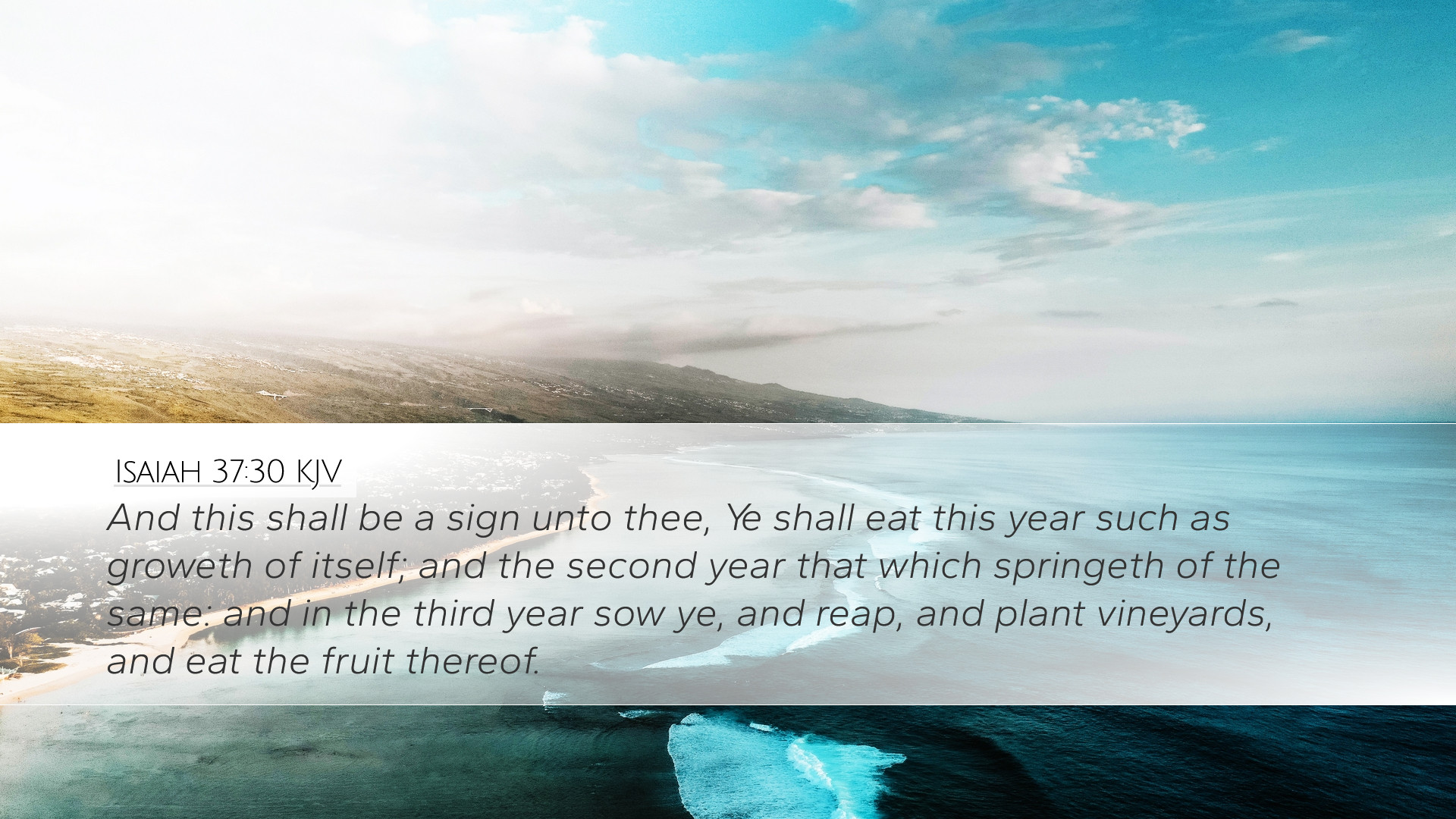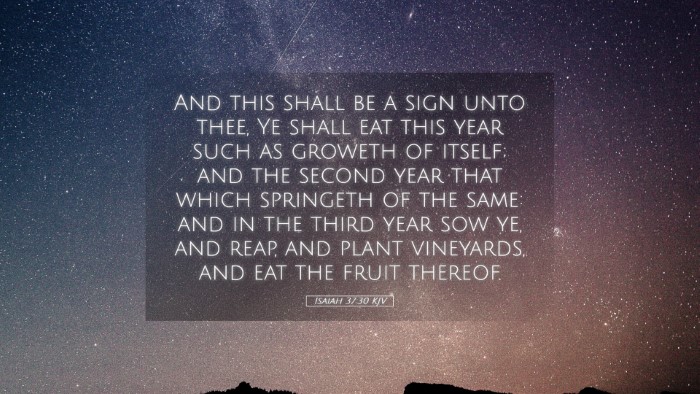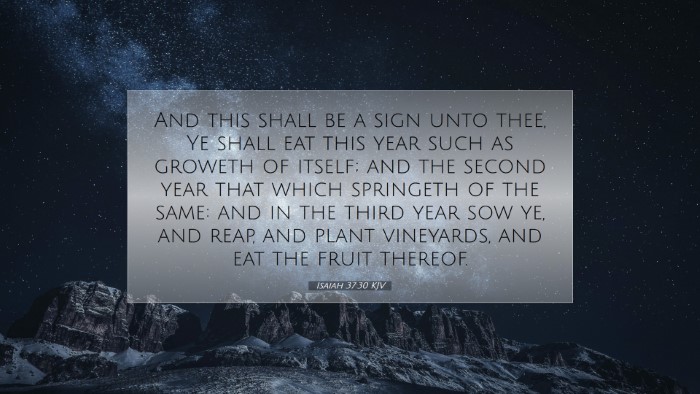Commentary on Isaiah 37:30
Isaiah 37:30 presents a powerful promise from God through the prophet Isaiah. The verse reads:
"And this shall be a sign unto thee, Ye shall eat this year such things as grow of themselves, and in the second year that which springeth of the same: and in the third year sow ye, and reap, and plant vineyards, and eat the fruits thereof."
Contextual Background
This verse belongs to a broader narrative where King Hezekiah faces the threat of Assyrian invasion. Jerusalem is in a state of fear due to the formidable Sennacherib, and the prophet Isaiah brings a message of hope and divine intervention.
Thematic Exploration
In exploring Isaiah 37:30, we encounter several significant themes that emerge from its text:
- Divine Provision: God assures the people of His sustenance even in times of distress.
- Hope for the Future: The promise indicates a restoration that transcends immediate circumstances.
- A Call to Faith: The sign serves as an encouragement to trust in God's plans despite visible threats.
Commentary Insights
Matthew Henry's Commentary
Matthew Henry emphasizes the miraculous aspect of the provision God promises. He notes that the natural productivity of the fields would be sufficient to sustain the people in their time of crisis. This sustenance without human cultivation indicates divine intervention and reflects God’s promise to provide for His people in extraordinary ways.
Albert Barnes' Exegesis
Albert Barnes further elaborates on the significance of the "sign" given to Hezekiah. He interprets this as a reassurance from God that despite the current adversity, the agricultural productivity in the coming years would testify to God's faithfulness. Barnes notes that this assurance signifies a shift from despair to optimism, heralding the restoration of economic stability and the spiritual health of the nation.
Adam Clarke's Observations
Adam Clarke provides a practical perspective on this verse, commenting on its implications for daily life. He highlights that the message of sustenance is not just a physical provision but also a metaphor for spiritual nourishment. Clarke argues that God's promise to provide food "that grow of themselves" symbolizes reliance on divine grace rather than human effort.
Spiritual Implications
The prophetic promise in Isaiah 37:30 serves as a rich source of encouragement and reflects broader spiritual truths relevant to believers today. Key implications include:
- Faith in Trials: The assurance of God’s provision can strengthen believers in their own trials, reminding them that God is aware of their needs.
- Restoration is Possible: Just as God restored agricultural productivity, He can also bring about spiritual renewal and restoration in the lives of believers.
- Dependence on God: The notion of eating what grows naturally calls for an acknowledgment of God's sovereign hand in all provisions, both physical and spiritual.
Practical Applications
From Isaiah 37:30, several practical applications for pastors, students, theologians, and Bible scholars may be drawn:
- Developing Trust: Encourage congregations or students to trust in God's provision, particularly in their moments of need.
- Emphasizing Faith: Teach on the importance of maintaining faith and hope during crises, drawing parallels from Hezekiah's experience.
- Fostering Spiritual Growth: Look for natural opportunities for life and ministry to flourish, relying on God's provision rather than human resources alone.
Conclusion
Isaiah 37:30 holds a profound message for all believers—emphasizing reliance on God's promises during times of uncertainty. The assurance that God provides for His people remains a timeless truth that translates into both physical sustenance and spiritual nourishment.


